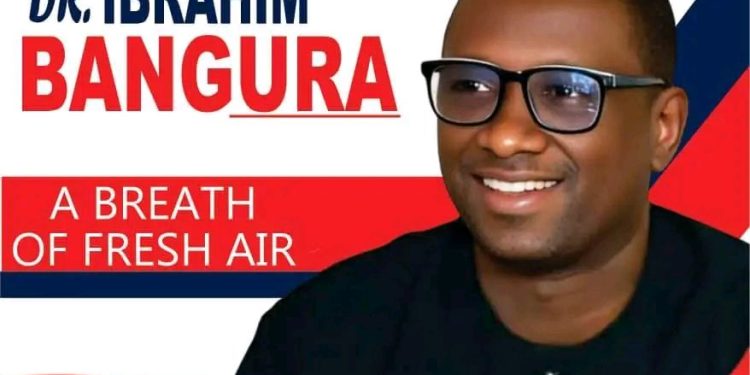By Jarrah Kawusu-Konte
Sumbaria, Koinadugu District — The river was once sacred. Children swam in it, elders bathed beside it, and women gathered to wash, laugh, and clean their families’ clothes in its soft rush of water. Now it is brown, shallow, and choking on mud.
“The fish are gone. The water stinks. Our children itch after bathing. And the sick no longer get healed by the water,” says 63-year-old Madam Isatu Bah, pointing to what remains of the Bafodia River.
The change was gradual, then sudden. Illegal gold mining upstream. Logging trucks hauling timber under police escort. Excavators with foreign number plates slicing through forest and riverbeds like butter.
“The river is dead,” she says. “And we are dying with it.”
A Nation Undone by Greed and Neglect
Sierra Leone’s forests and waterways are being decimated at alarming rates. According to Global Forest Watch, the country lost almost 38% of its tree cover between 2001 and 2022, nearly 1 million hectares, much of it in the past six years alone. Illegal logging, often facilitated by corrupt officials, is widespread. In 2023 alone, the Environmental Protection Agency (EPA-SL) recorded over 250 illegal logging operations, but prosecuted fewer than 10. Meanwhile, river dredging and unregulated gold mining, especially in Kono, Kenema, Tonkolili, and Koinadugu, have turned once-pristine rivers into polluted canals of sludge, mercury, and death.
A 2022 study by Njala University’s Environmental Sciences Department found dangerously high mercury levels in 7 of the 10 major rivers tested, affecting fish stocks and drinking water.
“These are more than environmental threats. They are direct public health crises,” said environmental researcher Dr. Francis Gbondo.
The Livelihood Collapse: From Protein to Poverty
The devastation has hit riverine communities hardest. Fish, once the cheapest source of protein, have nearly disappeared, where they are available, they are largely unaffordable. A 2023 FAO field report in Moyamba and Bonthe districts found that up to 80% of small-scale fishers have abandoned their work due to collapsed inland stocks. Women, who rely on rivers for smoking and selling freshwater fish, now struggle to feed families.
In Tongo Fields and Nimiyama Chiefdom, locals have stopped drinking from rivers they’ve used for generations. With no piped water alternative, many resort to shallow wells, increasing exposure to cholera, typhoid, dysentery, and skin infections.
“We have rivers we can’t swim in, fish we can’t eat, and water we can’t touch,” lamented a nurse at the Njagbwema clinic. “That is the price of unregulated mining.”
Logging and Climate Change: Fueling a Bigger Fire
Logging, both legal and illegal, is accelerating climate vulnerability. Sierra Leone’s average annual rainfall has declined, and dry seasons are longer and harsher, leading to crop failure and water scarcity. According to the United Nations Framework Convention on Climate Change (UNFCCC), Sierra Leone’s deforestation rate is four times the global average, driven by timber exports, charcoal production, and land clearing for mining.
These losses destroy animal habitats, forcing species closer to humans, a major factor in zoonotic spillovers like monkeypox, Lassa fever, and even Ebola. As Stanford’s EcoHealth Alliance notes: “Habitat fragmentation is a direct trigger for animal-borne disease emergence.”
Displacement, Disease, and Ecological Disruption
In Sahn Malen, communities displaced by industrial plantations and mining now live without shade trees, clean water, or access to traditional medicine plants.
In Kamakwie, Fullah cattle rearers report increased cattle deaths due to water contamination, leading to loss of income, social conflict with crop farmers, and a drop in local dairy supply.
“The land is no longer dependable,” said a herder named Ibrahim Jalloh. “We move our cows not for pasture, but for survival.”
Even Sierra Leone’s urban centers are under siege. Freetown’s hillsides have been stripped bare, leading to deadly landslides. Global voices on urban climate resilience have warned repeatedly:
“Deforestation is not a rural problem. It is an urban emergency. The death toll is not in theory. We have buried it.”
A Government Asleep at the Root
Despite repeated promises of reform, the current administration has failed to act. The 2020 National Tree Planting Campaign promised 5 million trees by 2023. By late 2023, less than 500,000 had been planted, many already lost due to poor maintenance or political mismanagement.
The EPA’s enforcement budget remains below Le 20 billion ($1 million) annually, inadequate for a country of Sierra Leone’s size and complexity.
Environmental Impact Assessments (EIAs), meant to prevent destructive mining and logging, are either waived or ignored for politically connected companies. An Africa Confidential report (2023) listed Sierra Leone among the top five African nations with “weakest enforcement of environmental safeguards in extractives.”
Dr. Ibrahim Bangura has consistently tied environmental degradation to economic injustice and national insecurity.
“When a river dies, a village dies. When a forest falls, our children fall with it. The state must become guardian of the commons, not auctioneer of destruction.”
The Political Path to Redemption: APC Must Lead with Integrity
“The APC has a legacy to rebuild not just in roads and schools, but in rivers and trees. We must show that we can govern just for good and for all,” said Dr Ibrahim Bangura.
He has called on APC delegates to reject candidates who see the environment as “a resource to auction,” and embrace leaders who see climate, water, and land as the soul of the nation’s survival.
Conclusion: If the Land Could Vote
The rivers are dirty and they are grieving. The forests have been chopped and they have been betrayed. And the people who live among them are poorer, sicker, and more desperate because of it.
In Sumbaria, Madam Bah looks toward the fading current and speaks with the quiet wisdom of the earth:
“If the river could vote, it would not vote for these people again.”
It is time the rest of us did the same.













